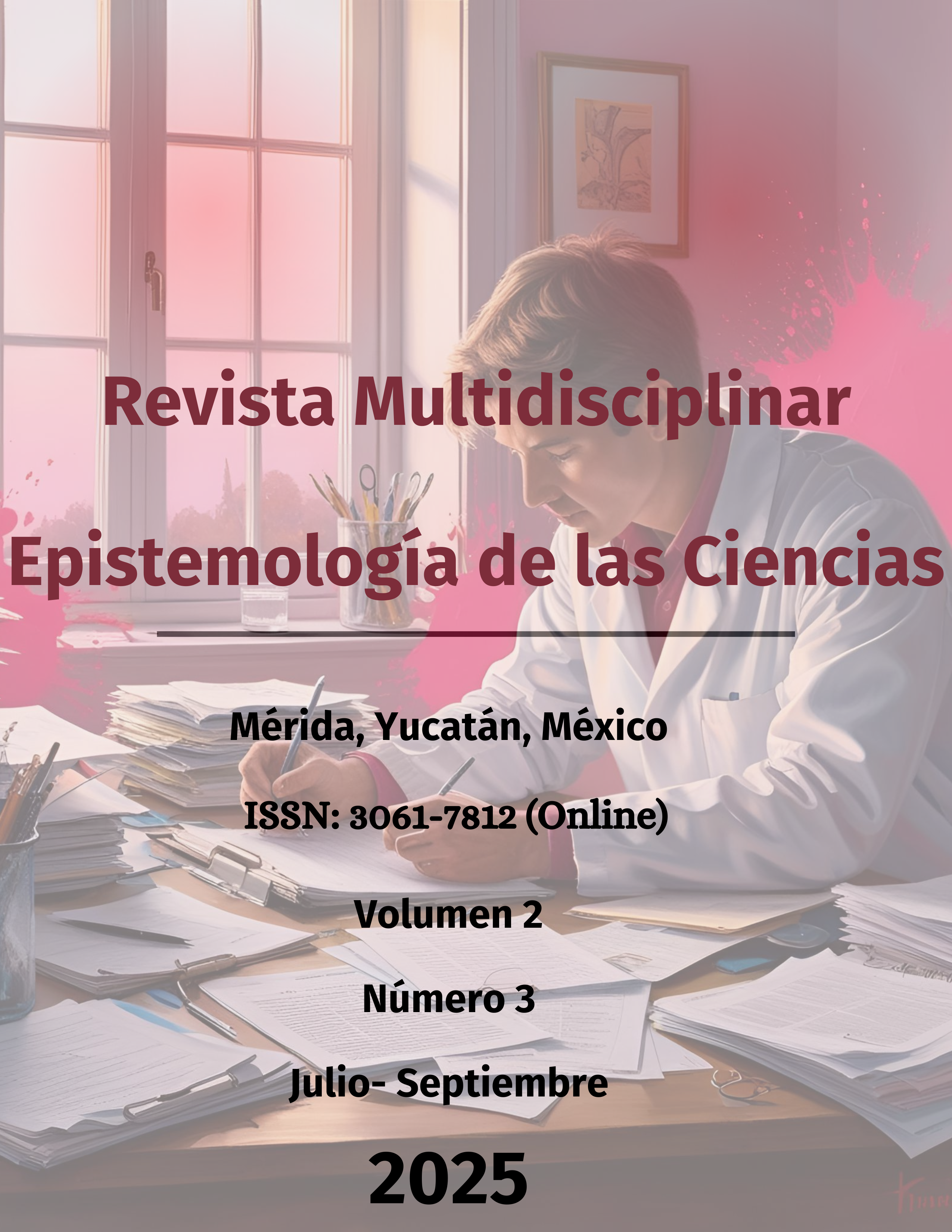Inteligencia artificial y tecnologías emergentes en el aprendizaje personalizado
DOI:
https://doi.org/10.71112/7z74xs42Palabras clave:
Inteligencia artificial, Tecnologías emergentes, Aprendizaje personalizado, Educación fiscal, Brecha digitalResumen
La presente investigación analiza la incorporación de la inteligencia artificial (IA) y las tecnologías emergentes en el aprendizaje personalizado dentro de instituciones fiscales de educación básica superior y bachillerato en Ecuador. El estudio se desarrolló bajo un enfoque mixto, aplicando encuestas y entrevistas a docentes y estudiantes para identificar percepciones, condiciones tecnológicas, formación docente y barreras existentes. Los resultados revelan que, aunque existe interés por parte de la comunidad educativa, la implementación de herramientas basadas en IA es aún limitada debido a la escasa capacitación docente y la desigualdad en el acceso a recursos tecnológicos. Se evidenció que los estudiantes reconocen el potencial de estas tecnologías para mejorar su aprendizaje, mientras que los docentes expresan la necesidad de formación específica para integrarlas pedagógicamente. Se concluye que el aprovechamiento efectivo de la IA requiere políticas educativas inclusivas, inversión sostenida en infraestructura y un marco ético que garantice la protección de datos. Esta investigación aporta evidencia relevante para fortalecer procesos de innovación educativa orientados a la equidad y la personalización del aprendizaje en el sistema público.
Descargas
Referencias
Alimisis, D. (2021). The use of educational robotics and AI in teacher training. International Journal of Smart Education and Urban Society, 12(1), 1–13. https://doi.org/10.4018/IJSEUS.2021010101 DOI: https://doi.org/10.4018/IJSEUS.2021010101
Belmont Report. (2022). Ethical principles and guidelines for the protection of human subjects of research. U.S. Department of Health and Human Services. https://www.hhs.gov/ohrp/regulations-and-policy/belmont-report/
Calle, M. A., Mejía, V., & Pérez, D. (2023). Transformación digital y su impacto en la educación pública ecuatoriana. Revista Ciencia, Tecnología y Sociedad, 6(2), 95–110. https://doi.org/10.5281/zenodo.10293876
Camacho, D., & Paredes, K. (2023). Formación docente en tecnologías emergentes: desafíos en el sistema educativo ecuatoriano. Revista Latinoamericana de Tecnología Educativa, 22(1), 45–63. https://revistas.uned.es/index.php/relatec/article/view/36281
Chen, L., Chen, P., & Lin, Z. (2020). Artificial intelligence in education: A review. IEEE Access, 8, 75264–75278. https://doi.org/10.1109/ACCESS.2020.2988510 DOI: https://doi.org/10.1109/ACCESS.2020.2988510
Chiu, T. K. F., Lin, T.-J., & Lonka, K. (2021). Motivating students in the digital learning era: A review of the effectiveness of smart learning environments. Interactive Learning Environments, 29(1), 1–15. https://doi.org/10.1080/10494820.2019.1636070 DOI: https://doi.org/10.1080/10494820.2019.1636070
Comisión Europea. (2021). Reglamento de Inteligencia Artificial de la Unión Europea. En Wikipedia. https://es.wikipedia.org/wiki/Reglamento_de_Inteligencia_Artificial_de_la_Unión_Europea
Creswell, J. W., & Creswell, J. D. (2023). Research design: Qualitative, quantitative, and mixed methods approaches (6th ed.). SAGE Publications.
Field, A. (2022). Discovering statistics using IBM SPSS statistics (6th ed.). SAGE Publications.
González-Marcos, A., Toledo-Delgado, P. A., & García-Peñalvo, F. J. (2021). Educational artificial intelligence applied to personalization in learning environments. Applied Sciences, 11(18), 8713. https://doi.org/10.3390/app11188713 DOI: https://doi.org/10.3390/app11188713
Guest, G., MacQueen, K. M., & Namey, E. E. (2012). Applied thematic analysis. SAGE Publications. https://doi.org/10.4135/9781483384436 DOI: https://doi.org/10.4135/9781483384436
Hernández-Sampieri, R., Mendoza, C., & Mendoza, P. (2022). Metodología de la investigación (7ª ed.). McGraw-Hill Education.
Holmes, W., Bialik, M., & Fadel, C. (2022). Artificial intelligence in education: Promises and implications for teaching and learning. Center for Curriculum Redesign. https://doi.org/10.58863/20.500.12424/4276068 DOI: https://doi.org/10.58863/20.500.12424/4276068
Huang, R. H., & Yu, S. (2022). Intelligent feedback and learner engagement in AI-supported learning environments. British Journal of Educational Technology, 53(2), 340–359. https://doi.org/10.1111/bjet.13178 DOI: https://doi.org/10.1111/bjet.13178
INEC. (2023). Estadísticas de educación y conectividad escolar en el Ecuador. https://www.ecuadorencifras.gob.ec
Inteligencia artificial en la educación. (2023). En Wikipedia. https://es.wikipedia.org/wiki/Inteligencia_artificial_en_la_educaci%C3%B3n
Ley Orgánica de Protección de Datos Personales (Ecuador). (2021). En Wikipedia. https://es.wikipedia.org/wiki/Ley_Org%C3%A1nica_de_Protecci%C3%B3n_de_Datos_Personales_(Ecuador)
Martínez-Abad, F., & Rodríguez-Conde, M. J. (2021). Digital competence and educational inclusion: A study with secondary teachers. Education Sciences, 11(2), 69. https://doi.org/10.3390/educsci11020069 DOI: https://doi.org/10.3390/educsci11020069
Martínez, J. L., & Rodríguez, C. E. (2023). Evaluación de herramientas de IA en entornos escolares de América Latina. Revista Iberoamericana de Tecnología Educativa, 17(1), 60–78. https://doi.org/10.5281/zenodo.10192384
Ministerio de Educación del Ecuador. (2023). Plan Nacional de Transformación Digital Educativa. https://educacion.gob.ec/transformacion-digital/
Nguyen, A., Gardner, L., & Sheridan, D. (2022). A systematic literature review of learning analytics intervention contributing to student success in higher education. Computers & Education, 180, 104429. https://doi.org/10.1016/j.compedu.2019.103599
Onwuegbuzie, A. J., & Collins, K. M. T. (2007). A typology of mixed methods sampling designs in social science research. The Qualitative Report, 12(2), 281–316. https://doi.org/10.46743/2160-3715/2007.1638 DOI: https://doi.org/10.46743/2160-3715/2007.1638
Ortiz, C., & Chancay, D. (2022). La educación digital en instituciones fiscales ecuatorianas: brechas y desafíos. Revista Conrado, 18(89), 120–130. https://conrado.ucf.edu.cu/index.php/conrado/article/view/2542
Patton, M. Q. (2023). Qualitative research & evaluation methods (5th ed.). SAGE Publications.
Plano Clark, V. L., & Ivankova, N. V. (2022). Mixed methods research: A guide to the field (2nd ed.). SAGE Publications.
Ramírez, M. D., & Vega, T. (2023). Competencias digitales docentes y el uso de IA en aulas fiscales ecuatorianas. Revista Digital de Educación, 11(2), 34–50. https://doi.org/10.5281/zenodo.10092534
Sáez-López, J. M., Cózar-Gutiérrez, R., & Domínguez-Garrido, M. C. (2021). Realidad aumentada y gamificación en educación: una revisión sistemática. Educación XX1, 24(2), 63–87. https://dialnet.unirioja.es/servlet/articulo?codigo=6765342
Smuha, N. A., Ahmed-Rengers, E., Harkens, A., Li, W., Maclaren, J., Piselli, R., & Yeung, K. (2021). How the EU can achieve trustworthy AI: A response to the European Commission’s proposal for an Artificial Intelligence Act. Leuven Centre for Global Governance Studies. https://doi.org/10.2139/ssrn.3899991 DOI: https://doi.org/10.2139/ssrn.3899991
UNESCO. (2021). Reimaginar juntos nuestros futuros: Un nuevo contrato social para la educación. https://unesdoc.unesco.org/ark:/48223/pf0000379707 DOI: https://doi.org/10.22201/iisue.24486167e.2022.177.61072
UNESCO. (2022). Futuros de la educación. En Wikipedia. https://es.wikipedia.org/wiki/Futuros_de_la_educaci%C3%B3n_(UNESCO)
UNESCO. (2023). Education and artificial intelligence: Challenges and opportunities. https://unesdoc.unesco.org/ark:/48223/pf0000385131
Wikipedia. (2023, diciembre 28). Ley Orgánica de Protección de Datos Personales (Ecuador). En Wikipedia. https://es.wikipedia.org/wiki/Ley_Org%C3%A1nica_de_Protecci%C3%B3n_de_Datos_Personales_(Ecuador)
Xie, H., Chu, H. C., Hwang, G. J., & Wang, C. C. (2021). Trends and development in technology-enhanced adaptive/personalized learning: A systematic review of journal publications from 2007 to 2017. Computers & Education, 140, 103599. https://doi.org/10.1016/j.compedu.2019.103599 DOI: https://doi.org/10.1016/j.compedu.2019.103599
Yin, Y., Chen, L., & Wang, Y. (2021). How artificial intelligence improves learning outcomes: Evidence from adaptive learning systems. British Journal of Educational Technology, 52(4), 1412–1430. https://doi.org/10.1111/bjet.13090 DOI: https://doi.org/10.1111/bjet.13090
Zawacki-Richter, O., Marín, V. I., Bond, M., & Gouverneur, F. (2019). Systematic review of research on artificial intelligence applications in higher education – Where are the educators? International Journal of Educational Technology in Higher Education, 16(1), 1–27. https://doi.org/10.1186/s41239-019-0171-0 DOI: https://doi.org/10.1186/s41239-019-0171-0
Publicado
Número
Sección
Licencia
Derechos de autor 2025 Revista Multidisciplinar Epistemología de las Ciencias

Esta obra está bajo una licencia internacional Creative Commons Atribución 4.0.











